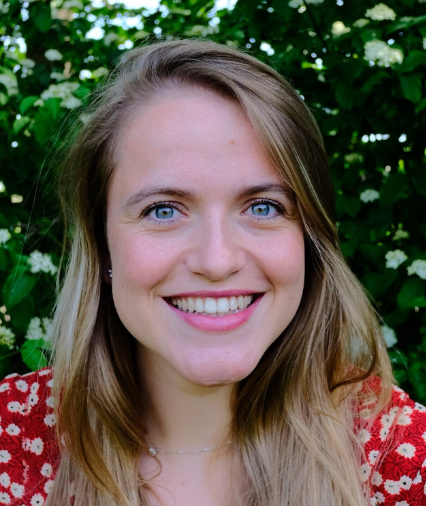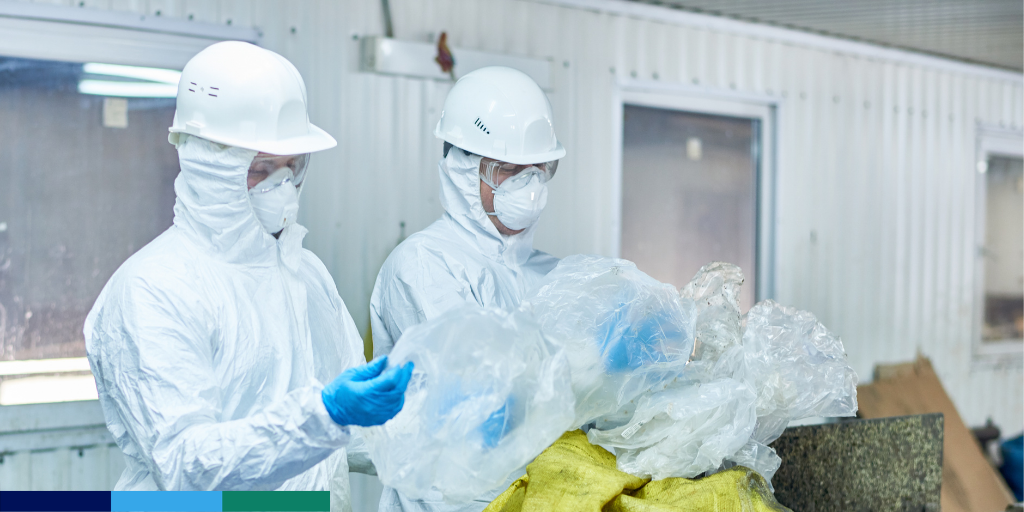Innovations and start-ups are key to achieving sustainability goals. Yet, innovations have trouble finding their way onto the market.
 Josephine Bosch, a recent graduate of the Centre for Sustainability Cities Hub, studied the relation and collaboration between circular start-ups, the municipality of Rotterdam, and, waste companies. We spoke to her to find out about her research and insights.
Josephine Bosch, a recent graduate of the Centre for Sustainability Cities Hub, studied the relation and collaboration between circular start-ups, the municipality of Rotterdam, and, waste companies. We spoke to her to find out about her research and insights.
Paving a path towards circular waste management
The city of Rotterdam aims to be fully circular by 2050. Josephine comments: ‘While the idea of going fully circular is commendable, the sub-goals and targets aren't very clear. Everyone seems to want to move into a circular economic model, but have no idea about how to get there.’
For example, one of the goals set by the municipality is to reduce textile waste. This brings up many questions for Josephine. ‘What happens to textiles along the supply chain and waste stream is unclear. When setting an ambition such as ‘going circular by 2050’, there is a need for clear information, requirements and targets. There is a lot of potential to re-use resources, and this is where start-ups can come into play. Start-ups could provide the key to finding innovative circular waste management solutions.
Circular start-ups are new, independent and active companies pursuing a circular business model. The circular economy is an industrial system that is restorative or regenerative by intention and design. It aims for the eliminations of waste through the superior design of materials, products, systems, and within this, business models.
Combining efforts
The municipality of Rotterdam asks: Can we create innovative circular solutions for collecting and processing waste, in the compact, vertical areas of Rotterdam? This brought Josephine to her research question: ‘How can municipalities and circular start-ups combine their efforts to meet the challenges in the waste industry of the current era?’
Create common ground
Municipalities and waste companies understand the potential and importance of start-ups. Start-ups are hubs for innovation and can accelerate circular transformation. ‘While established parties understand the need for start-ups, they expect them to fail.’
Start-ups face issues beyond finance. ‘Innovations have trouble surviving the market – especially circular start-ups who work with waste. Municipalities and waste companies want to move circular, but they all have different expectations and ideas on how to get there.’
‘One of the barriers is a missing link in communication between the municipality, waste companies and start-ups.’ Josephine’s research identifies a need for common ground between the different parties. ‘Each party has a different social construction of reality. Every individual creates their own reality, and the realities of the three different actors don’t meet each other, so it’s hard to collaborate. First, the parties need to be aware of the differences in approaches, and how others see the problem. The solution here is to improve communication to align perceptions and expectations.’
In order to collaborate, different parties need to align their perceptions and expectations.
Policy for a circular economy
Josephine employs the theory of innovation policy framework in her research. 'This framework is used to understand demand- and supply focused policy. Demand for solutions will trigger the creation of supply. The municipality of Rotterdam is willing to employ innovative solutions, but it does not have appropriate policy to trigger new innovations.
'By creating policy which provides clear guidelines like cost and volume requirements, you can encourage new solutions and start-ups. Formulating specific ambitions triggers the demand for solutions.'
'There is a need for incentive. Procurement of waste is currently heavily monopolised. Opening up waste procurement to different processors creates a window of opportunity for start-ups. Once there is an opportunity and clear information available, start-ups will look into how to create economic value from waste.'
Written by: Shivaani Harmsen
Resilient Cities Programme
The Inclusive Cities Programme is part of the Cities Hub. Josephine Bosch completed her study as part of the ongoing research done at the Cities Hub, in collaboration with local municipalities in Zuid-Holland.
More information


